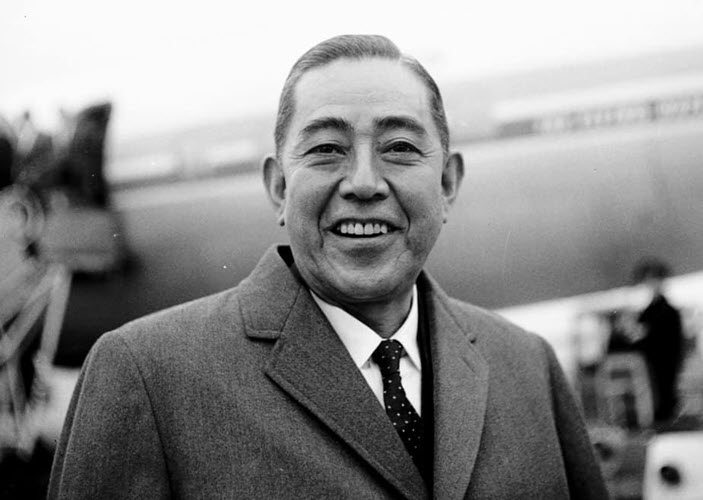Eisaku Sato (27 March 1901 – 3 June 1975) was a Japanese politician who served as the Prime Minister of Japan from 1964 to 1972. He was awarded the Nobel Peace Prize in 1974.
Life and Career
He was born on 27 March 1901, in Yamaguchi, Japan. He graduated from Tokyo Imperial University’s Faculty of Law in 1924. He was a bright student, and after completing his undergraduate studies, he pursued a career in law. Satō’s education helped him in his political career, where he served in various ministerial positions, including the Minister of Construction and Minister of Foreign Affairs, before becoming the Prime Minister of Japan.
Sato’s political career began in 1946 when he was elected to the House of Representatives as a member of the Liberal Party. He later joined the Liberal Democratic Party (LDP) and served as Minister of Construction and Minister of Foreign Affairs before being elected as the leader of the LDP in 1964.
Sato became the Prime Minister of Japan in 1964 and served in that position until 1972. During his tenure as Prime Minister, Satō oversaw a period of significant economic growth and development in Japan, known as the “Japanese economic miracle.” He also played a key role in improving Japan’s relations with other countries, including the United States and China.
He was a strong advocate for disarmament and worked to prevent the spread of nuclear weapons. He retired from politics in 1972. He died on 3 June 1975 in Tokyo.
Award and Legacy
He was awarded the Nobel Peace Prize in 1974 for his work in promoting disarmament and preventing the spread of nuclear weapons. He was the first Asian to receive this award.
His legacy includes his contributions to Japan’s economic growth and development during his tenure as Prime Minister, as well as his efforts to improve Japan’s relations with other countries, including the United States and China. His work on nuclear disarmament and non-proliferation also remains an important part of his legacy.
Sato’s leadership during a time of rapid change and modernization in Japan, and his commitment to promoting peace and stability in the world, continue to be remembered and celebrated in Japan and beyond.

